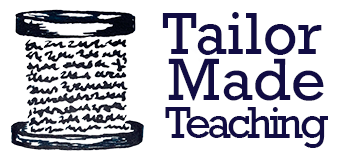
What is the Cambridge C1 Advanced exam?
‘C1 Advanced’ used to be known as the Cambridge Advanced Exam (CAE). It is designed to prove high-level use of English (C1 on the CEFR scale). It follows the ‘B2 First’ exam (which used to be known as the First Certificate Exam (FCE). Students often go on to take the ‘C2 Proficiency’ exam (previously known as the Cambridge Proficiency Exam – CPE), which is the highest Cambridge English language qualification.
Why take the exam?
The C1 Advanced exam is accepted by more than 25,000 educational institutions, businesses and government departments around the world and is equivalent to a 6.5 or 7.0 score in the IELTS exam.
C1 Advanced v. Other Exams
Unlike the IELTS exam, the C1 Advanced exam is valid for life. However, the C1 Advanced is a pass or fail exam, you will only get a certificate if you pass (60%+), whereas you can receive an IELTS score of anything from 1.0 to 9.0.
Both IELTS and the C1 Advanced are accepted by educational institutions, but the C1 Advanced is less academic, the topics are more varied and the writing tasks are more diverse.
The C1 Advanced Speaking test is taken with a partner who you will interact with. You may find this easier than the IELTS test, in which you are the only candidate.
If you are hoping to study at university level in an English-speaking country, you should check the university’s requirements for admission. It may be that they prefer you take the IELTS exam.
If you are taking an exam for business purposes, you may want to consider the Cambridge C1 Business Higher (previously called the BEC Higher) exam which is focused more on business English.
If you are hoping to work in healthcare in an English-speaking country, you should consider the Occupational English Test (OET).
Test Format
The exam is approximately 4 hours long and is made up of four sections.
Reading and Use of English (1 hr 30 mins) This includes different types of text such as fiction, news articles and magazines. This paper tests your grammar and vocabulary as well as your reading skills. In total there are 3,000 to 3,500 words to read.
Writing (1 hr 30 mins) You will need to write two texts. The first, an essay, is compulsory. For the second question you can choose between three different text types including a letter/email, proposal or review.
Listening (40 mins) This includes a range of listening texts such as interviews, radio broadcasts, presentations, lectures and everyday conversation.
Speaking (15 – 23 mins depending on whether there are two or three candidates taking the test together). This tests conversational as well as individual speaking skills.


